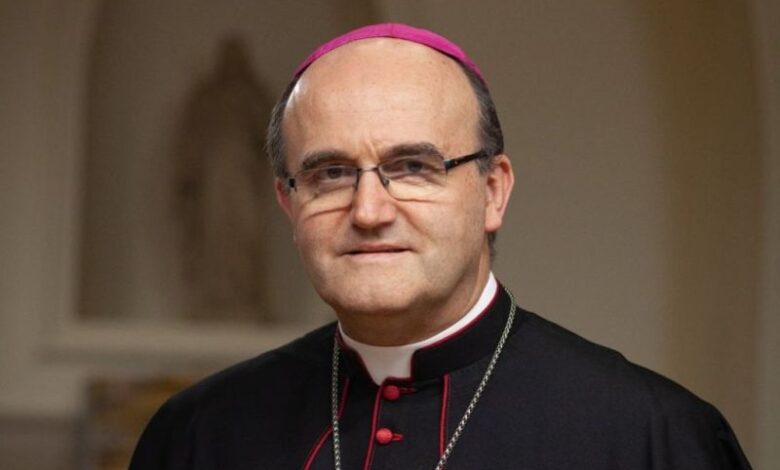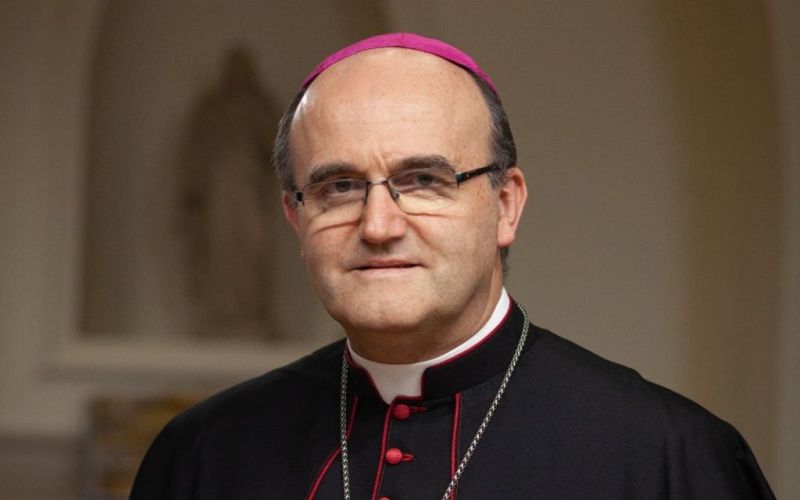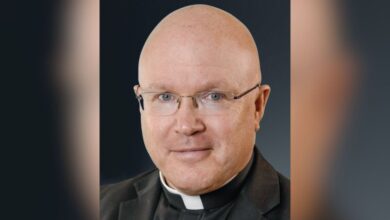Bishop Munilla: Fiducia Supplicans not ‘heretical’ but application will be ‘chaotic’

 His Excellency José Ignacio Munilla is bishop of the Orihuela-Alicante Diocese in Spain. / Credit: Diocese of Orihuela-Alicante, Spain
His Excellency José Ignacio Munilla is bishop of the Orihuela-Alicante Diocese in Spain. / Credit: Diocese of Orihuela-Alicante, Spain ACI Prensa Staff, Dec 21, 2023 / 18:15 pm (CNA).
The bishop of Orihuela-Alicante in Spain, José Ignacio Munilla, has elaborated on his response to the Vatican declaration Fiducia Supplicans on the blessing of couples in irregular unions.
In an interview with the online forum Religion in Freedom, the prelate pointed out that the text signed by the prefect of the Dicastery for the Doctrine of the Faith and Pope Francis “does not affirm anything that is against the faith of the Church.”
Asked if he was surprised by the publication of the declaration, Munilla said: “I would have expected another way of approaching the subject. I believe that a mistake has been made by not consulting the entire episcopate, especially when pastoral reasons are alleged in the declaration.”
The prelate cited the example of then-prefect of the Congregation for the Doctrine of the Faith, Cardinal Joseph Ratzinger, “who supervised the drafting of the Catechism of the Catholic Church in continuous consultation with the episcopacy of the entire world.”
Given that blessing same-sex couples, Munilla added, “is a particularly debated and sensitive issue, it’s surprising that they did not proceed in a synodal manner, in line with the ecclesiology of the Second Vatican Council. We would have been spared the dissenting reactions of episcopal conferences that we are witnessing, for example.”
In his opinion, “the accusation of heresy” that some have made regarding the text “has no objective basis in the text,” although he noted that “this declaration was not necessary” as there is one from 2021, also approved by Pope Francis, which “was not at all contrary to signs of pastoral charity” in regard to homosexual persons.
Munilla pointed out that the idea must be combatted, which is claimed by other sectors, that Fiducia Supplicans represents a change in the morals of the Catholic Church that is “substantially irreformable (including, of course, the doctrine on homosexuality).”
The Spanish bishop said for example there are “sectors that are in open disagreement with the sexual morality of the Church that are applauding this declaration at the same time that they are disobeying it” by supporting public blessings of homosexual couples.
This is the case, Munilla cited, of Jesuit Fr. James Martin along with the public blessings of homosexuals organized in Germany and Belgium.
The Spanish prelate warned about how this declaration will be put into practice, which in his opinion will be “predictably chaotic, as we are already beginning to see. It will be our duty to fight against it.”
Munilla believes that applications of the declaration are going to be “not only diverse, but contradictory.”
How to bless homosexual couples in conformity with doctrine
The Fiducia Supplicans declaration prohibits liturgical blessings but allows pastoral blessings for people living in irregular and objective situations of sin.
In that regard, Munilla emphasized that it is “necessary to know the context and formulation” of the blessings.
Thus, he continued, “it would not be in accordance with the faith of the Church” for a blessing that “due to the context or the words used, suggested the legitimation of the irregular union” since pastoral gestures cannot have as their objective “that everyone feels comfortable, but rather the call to conversion.”
“Otherwise, we would be betraying the Gospel of Jesus Christ,” he added.
So, how can such couples be blessed according to doctrine? Munilla said that “there would be no problem in performing a blessing, carried out in the privacy of pastoral accompaniment, with a formulation along the following lines:
“Lord, bless your children N. and N. and grant them to continue walking in humility, so that at the same time that they recognize your gifts, they also recognize that their union is not in accordance with your design. Pour out upon them your grace, for them to become coherent in their lives and accept with courage and determination your call to conversion. Amen.”
This story was first published by ACI Prensa, CNA’s Spanish-language news partner. It has been translated and adapted by CNA.




